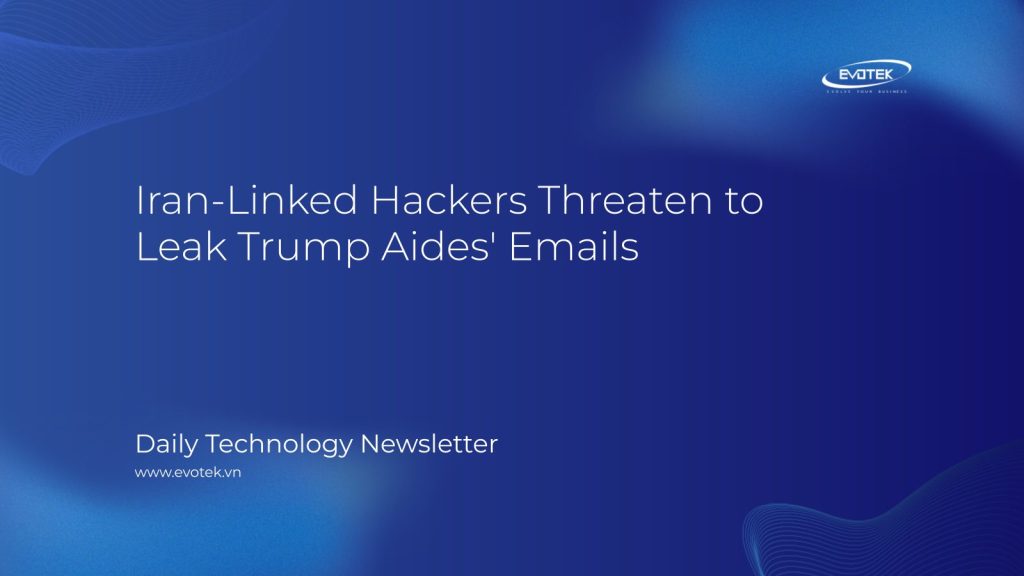A hacking group with suspected ties to Iran has threatened to release a trove of emails allegedly stolen from individuals within former U.S. President Donald Trump’s inner circle. This threat follows a previous leak of documents during the lead-up to the 2024 election.
The group, identifying themselves as “Robert,” communicated with Reuters, claiming possession of approximately 100 gigabytes of emails. These emails purportedly originate from accounts belonging to key figures such as former White House Chief of Staff Susie Wiles, Trump’s legal counsel Lindsey Halligan, advisor Roger Stone, and adult film actress Stormy Daniels.
While “Robert” hinted at potentially selling the stolen data, specific details about the content of the emails remain undisclosed. The alleged intrusion has sparked strong reactions, with U.S. Attorney General Pam Bondi denouncing it as an “unconscionable cyber-attack.”
In response, the White House and FBI issued a joint statement through FBI Director Kash Patel, vowing a full investigation and prosecution for anyone involved in breaches of national security. The cyberdefense agency CISA dismissed the incident as “digital propaganda,” suggesting a calculated smear campaign targeting President Trump and his associates.
Requests for comment from Halligan, Stone, and Daniels’ representative went unanswered. The Iranian mission to the United Nations has also not responded, although Tehran has historically denied engaging in cyberespionage.
The “Robert” group initially surfaced during the final months of the 2024 presidential campaign, claiming responsibility for breaching email accounts of several Trump allies, including Wiles. They subsequently disseminated emails to journalists.
Reuters verified portions of the leaked material last year, including an email suggesting a financial arrangement between Trump and lawyers representing Robert F. Kennedy Jr., who now serves as Trump’s health secretary. Other leaked material included Trump campaign communications and discussions regarding settlement negotiations with Stormy Daniels.
Although the leaks garnered media attention, they did not significantly impact the 2024 presidential election, which Trump ultimately won. The U.S. Justice Department indicted individuals linked to Iran’s Revolutionary Guards in September 2024, alleging their involvement in the “Robert” hacking operation.
After Trump’s election, “Robert” indicated an end to the leaks, even stating as recently as May, “I am retired, man.” However, the group resurfaced following recent military tensions between Israel and Iran, including U.S. airstrikes on Iranian nuclear sites.
In recent messages, “Robert” expressed intentions to organize a sale of the stolen emails, urging Reuters to publicize their actions.
Frederick Kagan, a scholar at the American Enterprise Institute, suggests that Iran’s cyber activities could be a response to losses suffered during the recent conflict, seeking retaliation without triggering further military action from the U.S. or Israel.
Despite concerns about potential digital attacks, Iranian hackers maintained a low profile during the conflict. U.S. cyber officials have cautioned that American companies and critical infrastructure operators may still be targets.
Keywords: Iran, Hackers, Donald Trump, Emails, Cyberattack, Data Breach, U.S. Election, Cybersecurity

 日本語
日本語 한국어
한국어 Tiếng Việt
Tiếng Việt 简体中文
简体中文